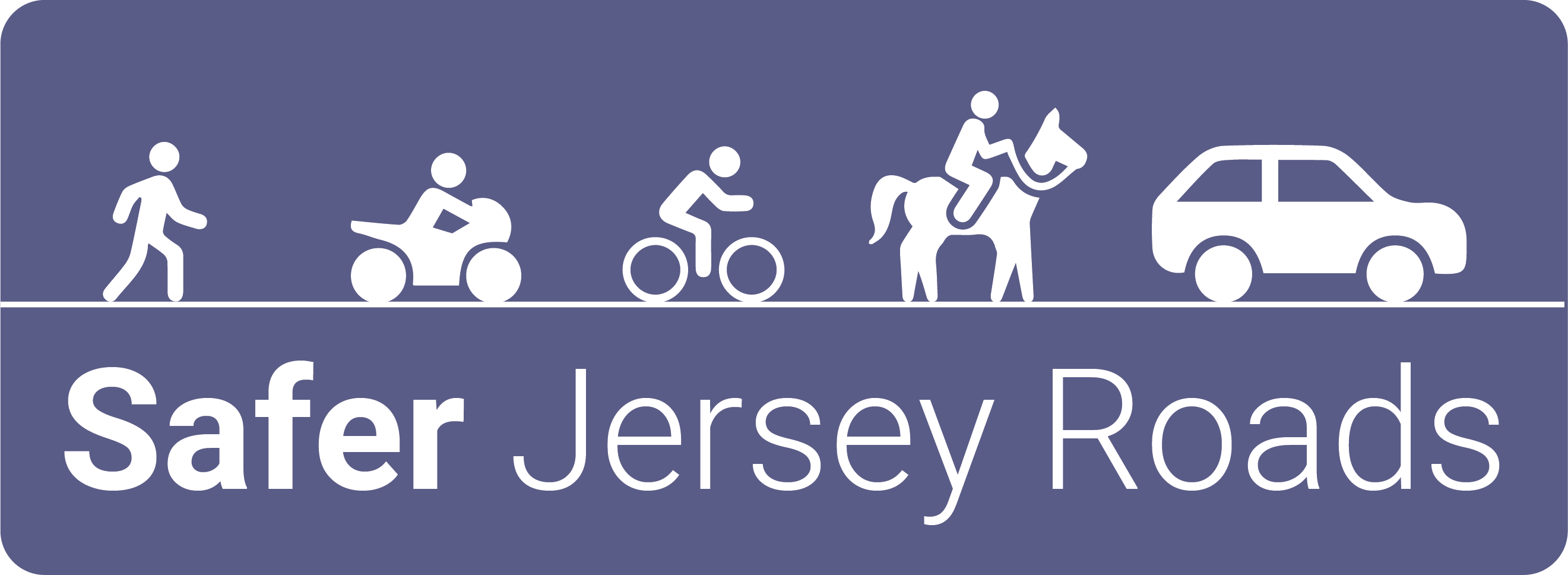The Fatal Five
The ‘Fatal Five’ refers to the major causes of road traffic collisions resulting in serious injuries. This concept has been widely used in road safety campaigns globally and is particularly relevant in the context of Jersey’s road safety initiatives. In Jersey, these five factors are consistently monitored and addressed through law enforcement, educational programs, and public safety campaigns to reduce collisions resulting in serious injuries.
1. Careless Driving
Careless driving encompasses a range of irresponsible behaviours on the road that can lead to severe collisions, resulting in serious injuries, fatalities, and lasting consequences for everyone involved.
Listed below are examples and associated penalties for careless driving.
Examples of Careless Driving:
- Risking overtaking and undertaking
- Distractions such as eating, drinking and mobile phone use
- Tailgating
- Ignoring road signs and signals
- Improper lane changes and failing to signal
- Not driving at an appropriate speed for the weather/ road conditions
Penalties for Careless Driving:
- Criminal record
- Fine up to £10,000
- Potential driving ban/ licence endorsement
- Magistrate Court hearing
- Potential requirement to re-sit driving test
- High insurance premiums
- Difficulty hiring a car for 10 years
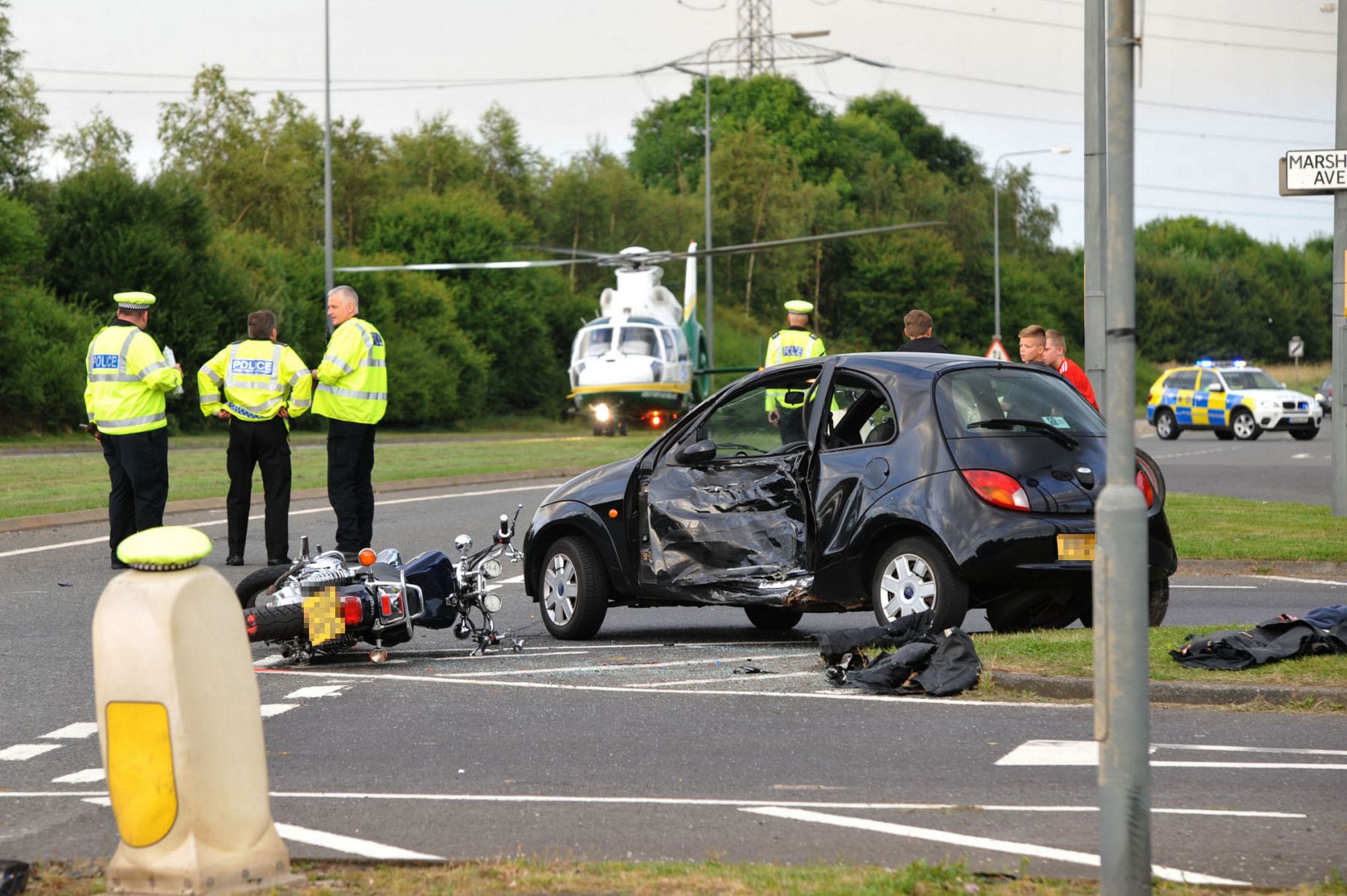

Examples of Careless Driving:
- Risking overtaking and undertaking
- Distractions such as eating, drinking and mobile phone use
- Tailgating
- Ignoring road signs and signals
- Improper lane changes and failing to signal
- Not driving at an appropriate speed for the weather/ road conditions
Penalties for Careless Driving:
- Criminal record
- Fine up to £10,000
- Potential driving ban/ licence endorsement
- Magistrate Court hearing
- Potential requirement to re-sit driving test
- High insurance premiums
- Difficulty hiring a car for 10 years

2. Drink/ Drug Driving
Drink and drug driving are dangerous and illegal behaviours that significantly impair your ability to safely operate a vehicle. These actions increase the risk of severe collisions, leading to serious injuries, fatalities, and devastating consequences for all road users.
Below are the legal alcohol limits, the dangers of driving the morning after drinking, the risks associated with drug driving, and the penalties for both offences.
Drug Driving
Driving under the influence of drugs, whether they are illegal substances, prescription medications, or over-the-counter drugs, can be just as dangerous as driving under the influence of alcohol.
Drugs can impair your ability to drive by affecting your reaction times, concentration, coordination, and judgment. Even medications prescribed by a doctor can impair your driving ability, particularly if they cause drowsiness or slow reaction times. It is illegal to drive if your ability to do so is impaired by any drug.
Penalties for Drink/ Drug Driving:
- Criminal record
- Fine up to £10,000
- Minimum 12 month driving ban
- Magistrate Court hearing
- Requirement to re-sit driving test
- Potential job loss
- High insurance premiums
- Difficulty hiring a car for 10 years
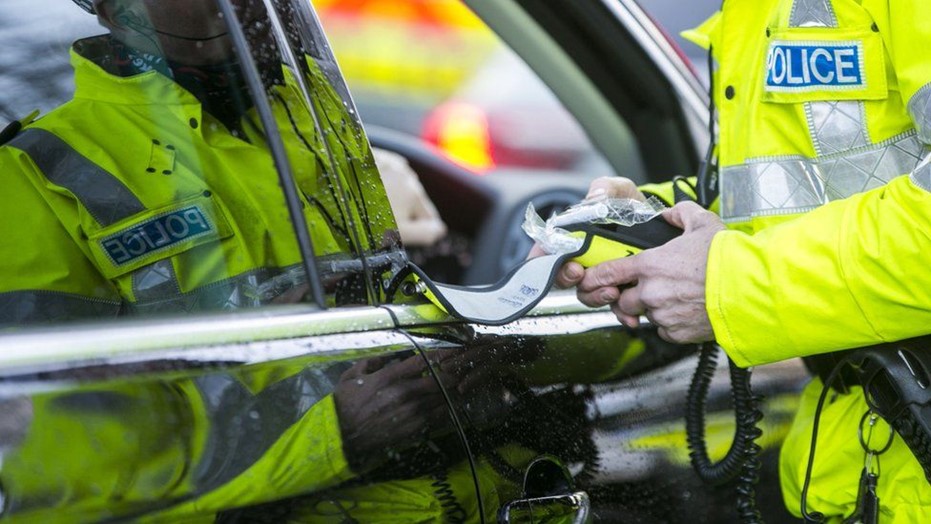
Drug Driving
Driving under the influence of drugs, whether they are illegal substances, prescription medications, or over-the-counter drugs, can be just as dangerous as driving under the influence of alcohol.
Drugs can impair your ability to drive by affecting your reaction times, concentration, coordination, and judgment. Even medications prescribed by a doctor can impair your driving ability, particularly if they cause drowsiness or slow reaction times. It is illegal to drive if your ability to do so is impaired by any drug.
Penalties for Drink/ Drug Driving:
- Criminal record
- Fine up to £10,000
- Minimum 12 month driving ban
- Magistrate Court hearing
- Requirement to re-sit driving test
- Potential job loss
- High insurance premiums
- Difficulty hiring a car for 10 years

Legal Alcohol Limits:
- 35 micrograms of alcohol per 100 millilitres of breath
- 80 milligrams of alcohol per 100 millilitres of blood
- 107 milligrams of alcohol in 100 millilitres of urine
It’s crucial to understand that being under the legal limit does not necessarily mean it is safe to drive. Alcohol affects everyone differently, and the rate at which it is processed can vary significantly from person to person. The only truly safe approach if you are driving is to avoid alcohol entirely.
You can be breath tested at any time, if you cannot provide a breath test, a blood test will be offered as an alternative.
The Morning After Drinking
Be cautious the morning after drinking, as it can take much longer than expected for alcohol to leave your body.
On average, it takes roughly an hour to process a unit of alcohol, but this can vary based on numerous factors, including your body weight, metabolism, and the amount of food you have eaten. It is a common misconception that drinking water, coffee, or eating a big meal can speed up the process.
These methods do not eliminate alcohol from your system; only time can do that. If you have consumed a significant amount of alcohol, avoid driving the next day to ensure you are completely sober.

3. Not Wearing a Seatbelt
Not wearing a seatbelt significantly increases the risk of serious injury or death in the event of a collision. Wearing a seatbelt is a simple yet vital step to ensure your safety and the safety of others.
Below are the importance of wearing a seatbelt, the penalties for not wearing one, exemptions, and considerations for children.
Importance of Wearing Seatbelts:
- Seatbelts prevent occupants from being thrown from the vehicle in a collision
- They distribute the force of a collision across the stronger parts of the body
- Wearing a seatbelt doubles your chances of surviving a serious collision
- In the event of a rollover, seatbelts reduce the risk of fatal injuries by keeping occupants secured inside the vehicle
- Seatbelts reduce the risk of head and spinal injuries by keeping occupants securely in their seats
Penalties for Not Wearing a Seatbelt:
- Criminal record
- Fine up to £1,000
- Potential driving ban/ licence endorsement
- Parish Hall Enquiry
- Potential Magistrate Court hearing
- High insurance premiums
- Difficulty hiring a car for 10 years
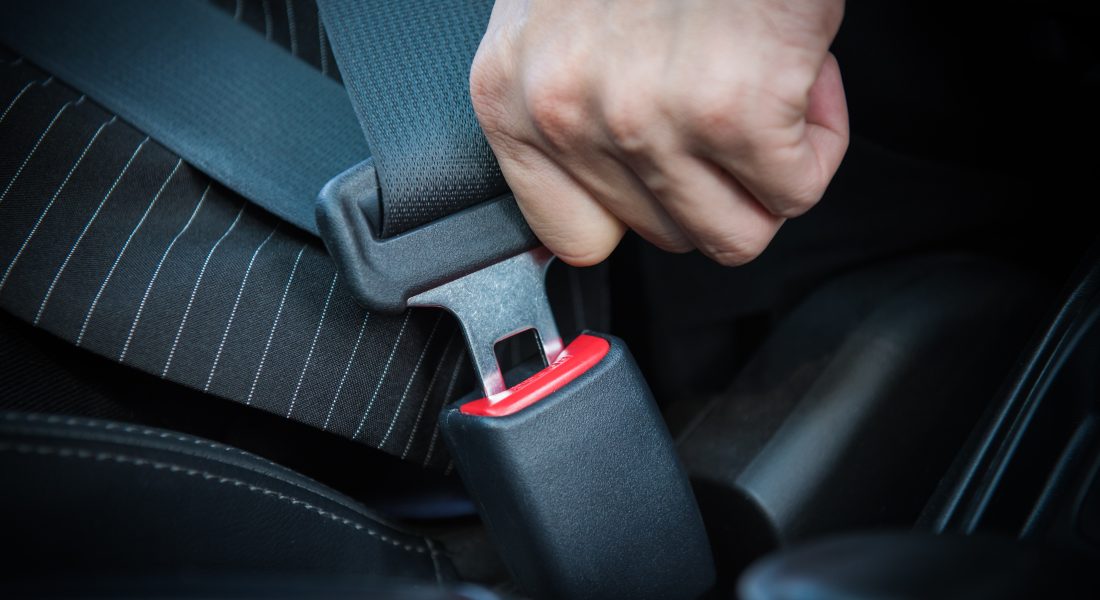
Importance of Wearing Seatbelts:
- Seatbelts prevent occupants from being thrown from the vehicle in a collision
- They distribute the force of a collision across the stronger parts of the body
- Wearing a seatbelt doubles your chances of surviving a serious collision
- In the event of a rollover, seatbelts reduce the risk of fatal injuries by keeping occupants secured inside the vehicle
- Seatbelts reduce the risk of head and spinal injuries by keeping occupants securely in their seats
Penalties for Not Wearing a Seatbelt:
- Criminal record
- Fine up to £1,000
- Potential driving ban/ licence endorsement
- Parish Hall Enquiry
- Potential Magistrate Court hearing
- High insurance premiums
- Difficulty hiring a car for 10 years

Exemptions
All drivers and passengers must wear seatbelts, unless:
- Driving a vehicle for the delivery or collection of goods or mail and you constantly leave and re-enter the vehicle because of the proximity of the delivery and collection points
- Driving a vehicle while reversing
- Supervising the holder of a provisional licence while reversing
- Engaged on the duties of a cab driver
- Holding a valid medical exemption certificate
- Occupying a seat not fitted with a prescribed seat belt and is not required to be fitted with a prescribed seat belt
- You are registered disabled and your disability means it would not be practicable for you to wear any of the prescribed belts in the vehicle
Children
For children, appropriate car seats should be used until they reach 135cm in height or are 12 years old. For more information on child car seats click here.

4. Distracted by Mobile Phone
Using a mobile phone while driving is extremely dangerous as it diverts your attention from the road. This distraction can easily lead to collisions and severe consequences, affecting not only your safety but also that of other road users. Even a momentary lapse in concentration can result in tragic outcomes.
Provided below are details on when mobile phone use while driving is legal, as well as the penalties for illegal mobile phone use while driving.
Mobile Phone Use is Legal if:
- Using a Bluetooth headset, a built-in handsfree system
- Using a dashboard holder or mat
- Using a windscreen mount
- You need to call 999 or 112 in an emergency, and stopping the vehicle is unsafe or impractical
Penalties for Illegal Mobile Phone Use:
- Criminal record
- Fine up to £1,000
- Potential driving ban/ licence endorsement
- Parish Hall Enquiry
- Potential Magistrate Court hearing
- High insurance premiums
- Difficulty hiring a car for 10 years
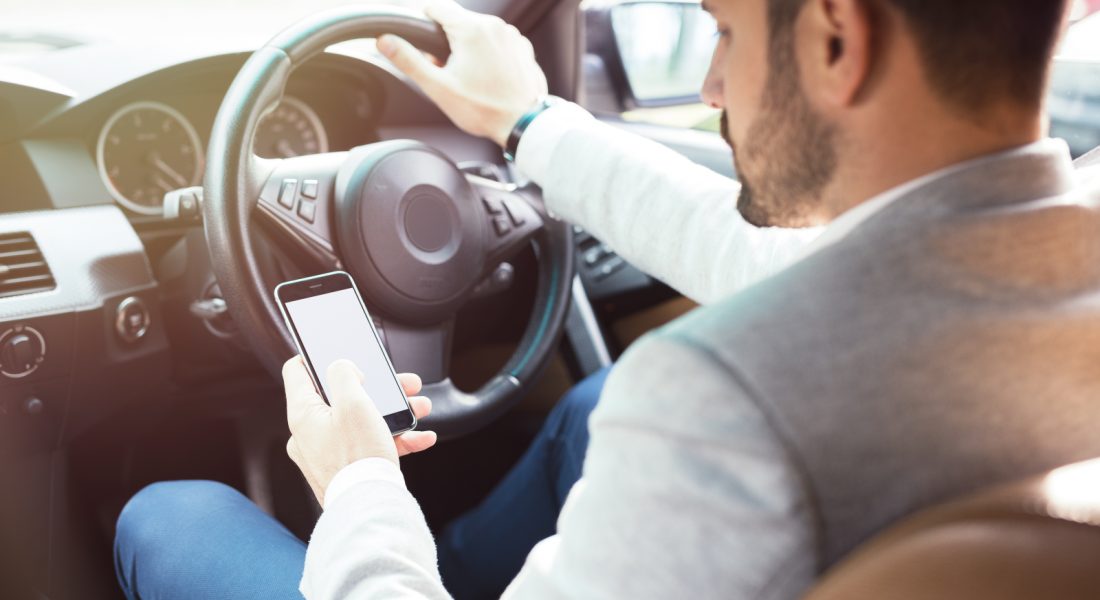
Mobile Phone Use is Legal if:
- Using a Bluetooth headset, a built-in handsfree system
- Using a dashboard holder or mat
- Using a windscreen mount
- You need to call 999 or 112 in an emergency, and stopping the vehicle is unsafe or impractical
Penalties for Illegal Mobile Phone Use:
- Criminal record
- Fine up to £1,000
- Potential driving ban/ licence endorsement
- Parish Hall Enquiry
- Potential Magistrate Court hearing
- High insurance premiums
- Difficulty hiring a car for 10 years


5. Speeding
Speeding is a major cause of road traffic collisions. Driving at high speeds significantly reduces your ability to react to sudden changes, such as unexpected obstacles or changes in traffic conditions. Moreover, the severity of collisions increases with speed, leading to more serious injuries or fatalities.
Provided below are the importance of driving at appropriate speeds and the penalties for speeding.
Importance of Driving at Appropriate Speeds:
- Driving at appropriate speeds increases reaction time, allowing more time to respond to unexpected hazards or changes in traffic conditions
- It reduces collision severity, as slower speeds result in less force upon impact, decreasing the risk of serious injuries or fatalities
- Maintaining appropriate speeds improves vehicle control, making it easier to handle the vehicle in adverse weather or challenging road conditions
- It protects vulnerable road users, such as pedestrians, cyclists, and motorcyclists, who are at greater risk in collisions
- For more information on Safe Speeds, please click here
Penalties for Speeding:
- Criminal record
- Fine up to £1,000
- Potential driving ban/ licence endorsement
- Parish Hall Enquiry
- Potential Magistrate Court hearing
- High insurance premiums
- Difficulty hiring a car for 10 years
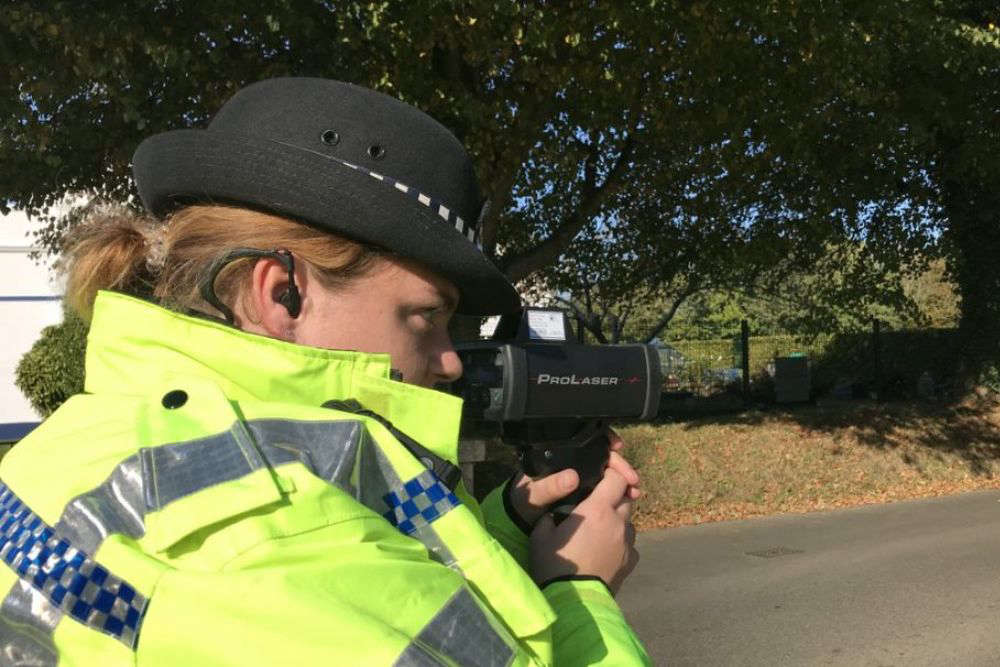
Importance of Driving at Appropriate Speeds:
- Driving at appropriate speeds increases reaction time, allowing more time to respond to unexpected hazards or changes in traffic conditions
- It reduces collision severity, as slower speeds result in less force upon impact, decreasing the risk of serious injuries or fatalities
- Maintaining appropriate speeds improves vehicle control, making it easier to handle the vehicle in adverse weather or challenging road conditions
- It protects vulnerable road users, such as pedestrians, cyclists, and motorcyclists, who are at greater risk in collisions
- For more information on Safe Speeds, please click here
Penalties for Speeding:
- Criminal record
- Fine up to £1,000
- Potential driving ban/ licence endorsement
- Parish Hall Enquiry
- Potential Magistrate Court hearing
- High insurance premiums
- Difficulty hiring a car for 10 years


